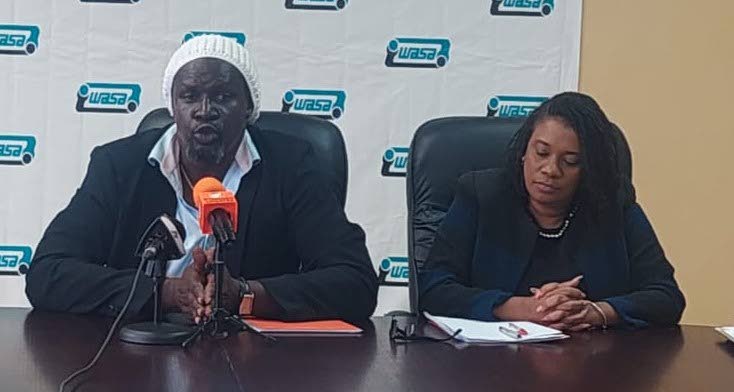WASA: Charlotteville to get desal plant by 2025 dry season

THE water supply in Tobago East, particularly Charlotteville, will be much improved for the next dry season, says Brian Williams, head of WASA's Tobago region.
In an interview on Tobago Updates on June 12, Williams acknowledged the challenges faced in providing water to some communities in hilly rural areas. He said some of the roads are so narrow that WASA trucks are unable to navigate them safely.
He said WASA has increased its fleet with smaller, 1,000-gallon trucks.
A partnership has also been formed with the fire service to help supply rural areas.
Williams said two projects in the pipeline will also bring huge relief to the communities: there are plans for a desalination plant in Charlotteville, to start by January 2025.
"That will allow for us to bring a continuous, sustainable, year-round supply to Charlotteville.
"The Charlotteville plant is carded to be installed by the end of this calendar year, so that by the start of the dry season next year we will have an alternative supply for Charlotteville."
He said there are plans for similar plants for other troubled areas in Tobago East.
A water treatment plant in Goldsborough is expected to be operational within the same timeline, which will provide two million gallons of water from the Goldsborough river.
He added, "This will put us in a very good place as we approach the 2025 dry season."
He acknowledged the harshness of the 2024 dry season, which he said affected river flow by as much as 80 per cent in some areas.
In addition, the Hillsborough Dam, a major reservoir, is 40 per cent full, way below its long-term average.
However, he remains optimistic, "The good news with our sources in Tobago (is that) in one day of rain, a lot could change."
He said the Courland river, which supplies the majority of the high-density southwest of the island, from Plymouth, Black Rock to Crown Point, was also negatively affected.
This was a cause for concern, as that area is a "tourism belt," with many hotels and other major infrastructure such as the ANR Robinson International Airport, health centres and schools.
He said the development of wells under the Ministry of Public Utilities helped mitigate the situation. The programme connected well fields to Crown Point.
But that line was damaged late in the dry season during the construction of the highway to Crown Point.
However, he boasted that this was repaired in five days and the requests for truck-borne water in Crown Point decreased from 32 a day to two.
Williams said WASA's Tobago supply is about 50-50 from surface sources and groundwater sources. He said the authority is very aggressive in its groundwater development programme, as this is more resilient against harsh dry seasons.
The plan at the start of the dry season, he said is for reservoirs to be at capacity. This year's dry season was hotter than normal,day and night, so evaporation further depleted the reservoirs.
Williams acknowledged that ageing infrastructure resulting in leaks had been a factor, but said WASA is aggressively tackling it.

Comments
"WASA: Charlotteville to get desal plant by 2025 dry season"